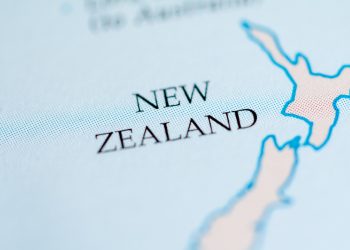The clean-up so far cost is estimated at $12.1 million
 The Prime Minister has indicated the Government will chase more cash from the Rena’s owners than the estimated liability it already faces. But whether it will be successful is unclear.
The Prime Minister has indicated the Government will chase more cash from the Rena’s owners than the estimated liability it already faces. But whether it will be successful is unclear.
This comes as Tauranga businesses are already taking a hit from the Rena oil spill and could do with immediate financial relief.
The Government is considering a compensation package, but Transport Minister Steven Joyce said it was not committing to anything at this stage.
Under the Maritime Transport Act the capped civil liability to the ship’s insurers is estimated at $14 million by legal commentators. John Key said the clean-up so far had cost an estimated $12.1 million.
The liability pales beside what the ship is insured for: US$4.2 billion for a single event with a sub-limit of about US$1 billion for a pollution event.
Treasury and the Ministry for the Environment were still working on a figure for what the disaster was likely to cost the country.
Mr Key said yesterday there was discussion and ongoing negotiations with the owners in terms of what the absolute liability would be but the Government wasn’t without potential legal remedies.
“They come through the RMA act and then also depending on whether a case for gross negligence can be proven, then that opens up other opportunities for government.”
Victoria University law lecturer Joanna Mossop said under the RMA, the Rena owner, Costamare could face fines worth hundreds of thousands of dollars if liable.
But the Maritime Transport Act is likely to be more useful to the Government because while it sets the terms for the capped liability, the legislation also sets out that the cap could be set aside if recklessness or negligence can be shown.
Auckland barrister Ashley Sharp said passing the “recklessness” threshold for removing the cap was not easy and until the facts were known it was difficult to assess culpability. He had been involved with shipping action which had taken years to move through the courts.
Meanwhile, Mr Joyce warned that it may be some time before “the extent of the effect [of the disaster on businesses] and how long-lasting it will be” was known.
Tauranga Chamber of Commerce chief executive Max Mason said businesses such as surfing schools, fishing fleets and charter boats had already had to shut up shop.
“It would be great if we had an emergency fund to help those people.”
Within six days of the February earthquake in Canterbury, the Government had set up an emergency package for business owners and workers. Mr Joyce said the Rena situation was different but “we are working on it”.
Mr Key said he was concerned about the potential impact on tourism from international media pictures of black beaches. “[But] we are a country surrounded by coastline and we take the bulk of our goods via ships. I think people will understand that these things can happen, frankly through no fault of the government.”
The Green Party has used the Rena incident to highlight the dangers of deep-sea oil drilling.
“Coastal shipping accidents are relatively rare and preventable, and involve smaller quantities of oil.
“Compared to coastal shipping, not only is deep-sea oil drilling far more risky in terms of probability of accidents, the consequences would be more severe,” said MP Gareth Hughes.
But Mr Key said this was “just a political ploy to get that into the public domain. This is a container ship that crashed on a reef. I don’t hear the Greens saying we should stop having container ships coming to New Zealand”.
Source: Nz Herald





























































